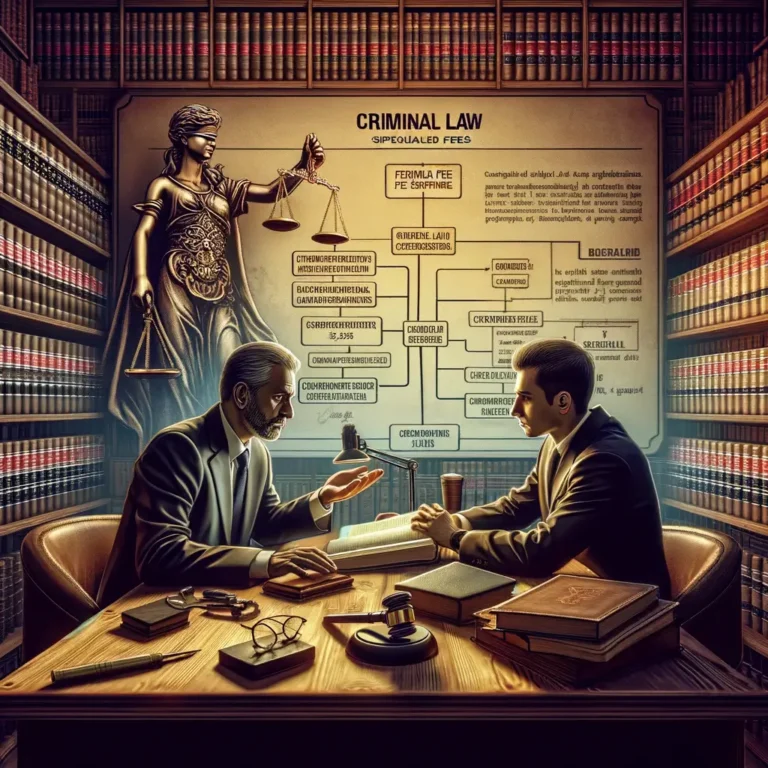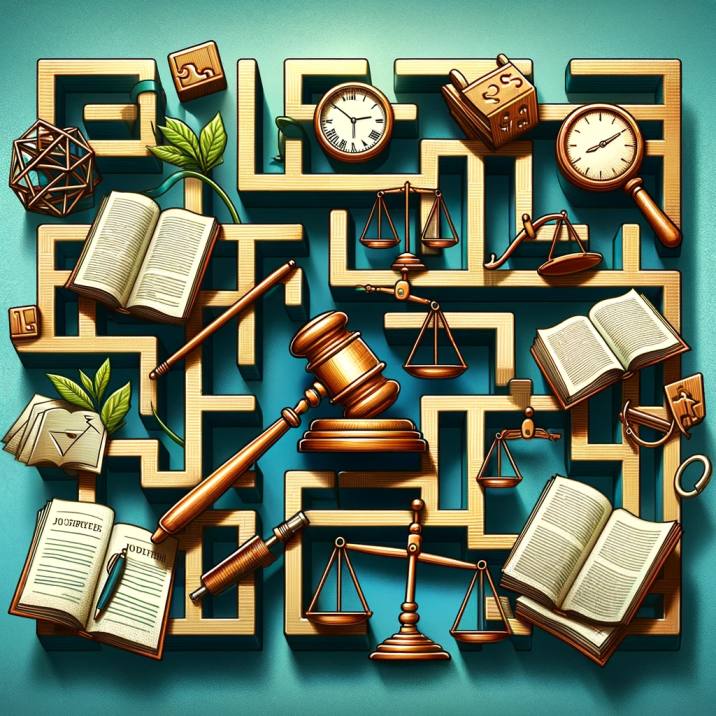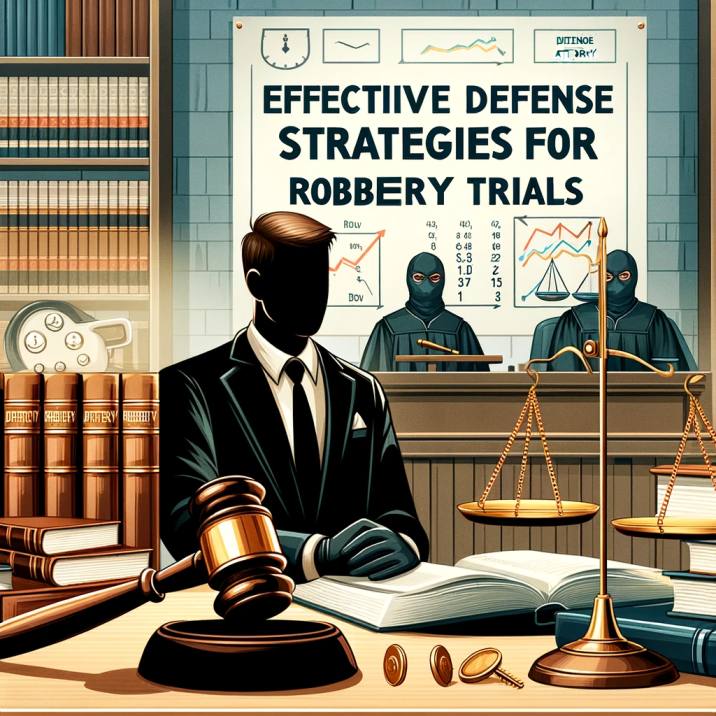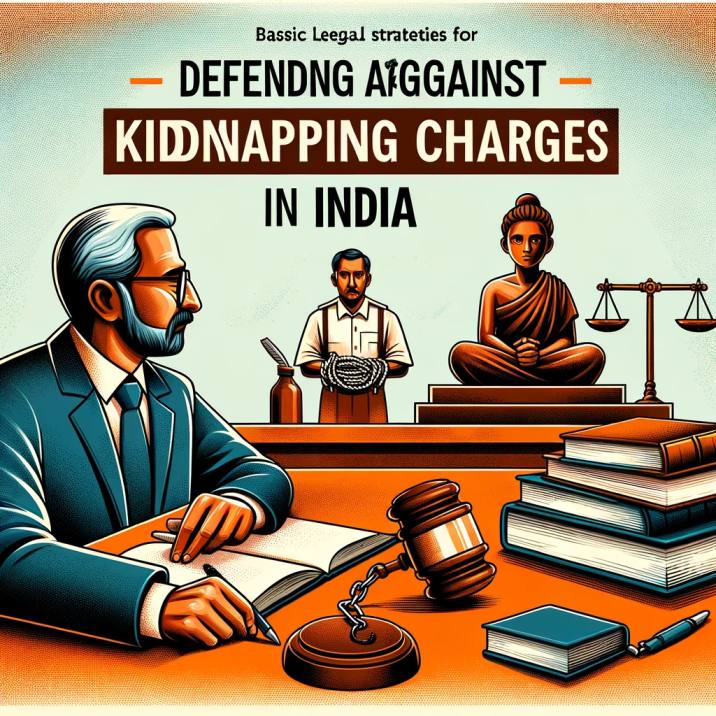Facing a criminal charge can be overwhelming and disorienting. Understanding your rights and navigating the complex legal system is crucial during this stressful time. One of the most critical decisions you’ll make is whether to seek legal representation. While the right to self-representation exists, in most cases, securing an experienced criminal defense lawyer is the wisest course of action.
Do I Need a Lawyer for My Criminal Case?
The Stakes Are High
Even seemingly minor charges can have life-altering consequences. Fines, jail time, probation, and a criminal record can impact your employment, housing, and relationships. A skilled lawyer can fight for the best possible outcome, minimizing potential penalties and protecting your future.
Understanding the Law is a Labyrinth
The legal system is intricate and riddled with procedural rules and evidentiary regulations. Navigating these complexities alone is a near-impossible feat. Lawyers possess the knowledge and expertise to ensure fair treatment and protect your rights throughout the process.
An Advocate in Your Corner
Facing the prosecution alone can be intimidating. A lawyer acts as your voice, presenting your case and negotiating with the prosecution on your behalf. They will also guide you through witness interactions, court appearances, and potential plea bargains.
When Seeking a Lawyer is Especially Crucial
Certain situations significantly heighten the need for legal representation:
- Serious Charges: Facing felonies or misdemeanors with harsh penalties like imprisonment demands an experienced lawyer familiar with the specific statutes and sentencing guidelines.
- Complex Evidence: Cases involving intricate evidence and witness testimony require a lawyer skilled in legal analysis and presentation to effectively represent your position.
- Lack of Legal Knowledge: If you feel unfamiliar with legal procedures or overwhelmed by the complexity of the case, securing professional guidance is essential.
Alternatives to Hiring a Private Lawyer
Public Defenders:
If you meet financial eligibility requirements, you may be entitled to a public defender appointed by the court. While public defenders are skilled attorneys, their caseload can be high, limiting the time they can dedicate to each individual case.
Legal Aid Organizations:
Non-profit organizations offer legal assistance to low-income individuals. While they may not represent you in court, they can provide valuable legal advice and guidance.
Don’t Delay Seeking Legal Help
While seeking legal counsel early on is crucial, remember, it’s never too late to secure representation. Even at later stages of your case, a lawyer can assess the situation, develop strategies, and negotiate plea bargains or fight for reduced penalties.
Conclusion:
Facing a criminal charge is a serious matter. While the right to self-representation exists, seeking legal counsel is in your best interest to protect your rights, navigate the complex legal system, and optimize your chances for a favorable outcome. Don’t hesitate to explore your options and find a lawyer who can effectively represent you in this critical time.
FAQ (FREQUENTLY ASKED QUESTIONS)
- Q: Do I really need a lawyer for a criminal case?
A: Yes, having a lawyer is crucial to navigate the complexities of the legal system and ensure a good defense. - Q: Can I represent myself in a criminal case?
A: While it’s possible, it’s not recommended. Lawyers bring legal expertise and knowledge of courtroom procedures that can significantly impact the outcome. - Q: What are the potential consequences of not having a lawyer in a criminal case?
A: Without a lawyer, you risk not fully understanding your rights, making procedural errors, and facing harsher penalties. - Q: How do I choose the right lawyer for my criminal case?
A: Research potential attorneys, consider their experience in criminal law, and schedule consultations to find the best fit for your case. - Q: Can a lawyer help in getting charges dropped?
A: Yes, a skilled lawyer can investigate the case, identify weaknesses, and potentially negotiate with the prosecution for dropped or reduced charges. - Q: What if I can’t afford a lawyer?
A: You have the right to legal representation. If you can’t afford a lawyer, the court will appoint one for you. - Q: When should I hire a lawyer for a criminal case?
A: It’s advisable to hire a lawyer as soon as you become aware of the charges against you, ideally before speaking to law enforcement. - Q: How do lawyers charge for criminal defense services?
A: Lawyers may charge hourly rates, flat fees, or use a retainer system. Discuss fees and payment structures during your initial consultation. - Q: Can a lawyer help with pre-trial motions and hearings?
A: Yes, a lawyer can file motions to challenge evidence, seek the suppression of certain statements, and represent you at pre-trial hearings. - Q: Will a lawyer help in getting bail or reducing bail amounts?
A: Yes, a lawyer can advocate for reasonable bail and present arguments to the court in support of your release. - Q: How does attorney-client privilege protect me?
A: Anything you discuss with your lawyer is confidential. Attorney-client privilege ensures your communications are protected. - Q: Can a lawyer help with expunging my criminal record?
A: Yes, a lawyer can guide you through the process of expungement to clear or seal your criminal record. - Q: What if I’m innocent? Do I still need a lawyer?
A: Absolutely. A lawyer will work to prove your innocence, challenge evidence, and ensure your rights are protected. - Q: Can a lawyer help in cases of self-defense?
A: Yes, a lawyer can build a strong defense based on the principles of self-defense, presenting evidence to support your case. - Q: How long does a criminal case typically take?
A: The duration varies, but a lawyer can provide an estimate based on the specifics of your case. - Q: Will I have to go to trial if I hire a lawyer?
A: Not necessarily. Many cases are resolved through negotiations or plea bargains without going to trial. - Q: Can a lawyer help if I’ve violated probation?
A: Yes, a lawyer can assist in navigating probation violation hearings and minimizing the potential consequences. - Q: What should I do if I’ve been falsely accused?
A: Consult with a lawyer immediately. They can help gather evidence, build a defense, and challenge false accusations. - Q: Can a lawyer help in cases of juvenile offenses?
A: Yes, lawyers experienced in juvenile law can provide guidance and representation for minors facing criminal charges. - Q: Will a lawyer provide a free consultation?
A: Many lawyers offer free initial consultations. Take advantage of these to discuss your case and evaluate their expertise. - Q: Can a lawyer help with getting a more favorable plea deal?
A: Yes, negotiating plea deals is a common aspect of criminal defense, and a lawyer can work to secure the best possible outcome. - Q: What if I’ve already been convicted? Can a lawyer still help?
A: Yes, post-conviction relief options exist, such as appeals or petitions for a new trial, and a lawyer can explore these avenues. - Q: How can I assist my lawyer in building a strong defense?
A: Be honest, provide all relevant information, and follow your lawyer’s advice to strengthen your defense. - Q: Can a lawyer help if I missed a court date?
A: Yes, a lawyer can assist in addressing the situation, potentially avoiding additional penalties or arrest warrants. - Q: Will my lawyer handle all communication with the prosecution?
A: Yes, your lawyer will handle negotiations, discussions, and other communications with the prosecution on your behalf. - Q: Can a lawyer help in cases involving mental health issues?
A: Yes, lawyers can work with mental health experts to build a defense that takes mental health considerations into account. - Q: How important is the experience of a lawyer in criminal defense?
A: Experience is crucial. An experienced criminal defense lawyer understands the legal landscape and can navigate complexities effectively. - Q: Can a lawyer help in cases of domestic violence?
A: Yes, a lawyer can provide legal representation and build a defense strategy tailored to the specific circumstances of domestic violence cases. - Q: What should I do if I receive a plea deal from the prosecution?
A: Consult with your lawyer before making any decisions. They can advise you on the best course of action based on the terms of the plea deal. - Q: Can I change lawyers if I’m not satisfied with the representation?
A: Yes, you have the right to change lawyers if you feel your current representation is not meeting your expectations. Consult with new lawyers to ensure a smooth transition.
Sources:-
1.nolo.com
















